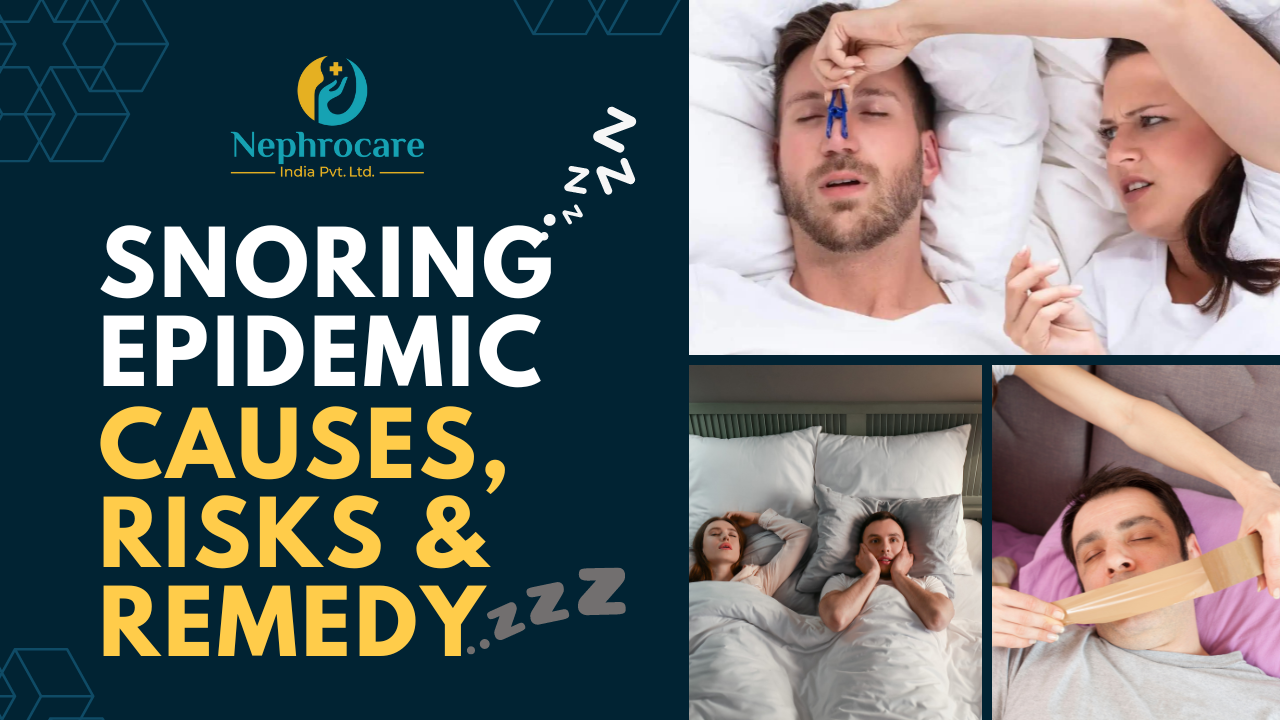
- 1404
- 6
The Snoring Epidemic: Causes and Cures
How many times have you been annoyed or woke up from sleep because of the snoring of your bed partner or roommate? Don’t get embarrassed by his or her snoring problems. Nearly everyone snores now and then but it’s not only always a normal habit or funny thing to snore.
Its severity and health implications can vary, can be light, occasional, and nothing to worry about, or it may be the sign of a serious underlying sleep-related breathing illness.
What do we mean by snoring?
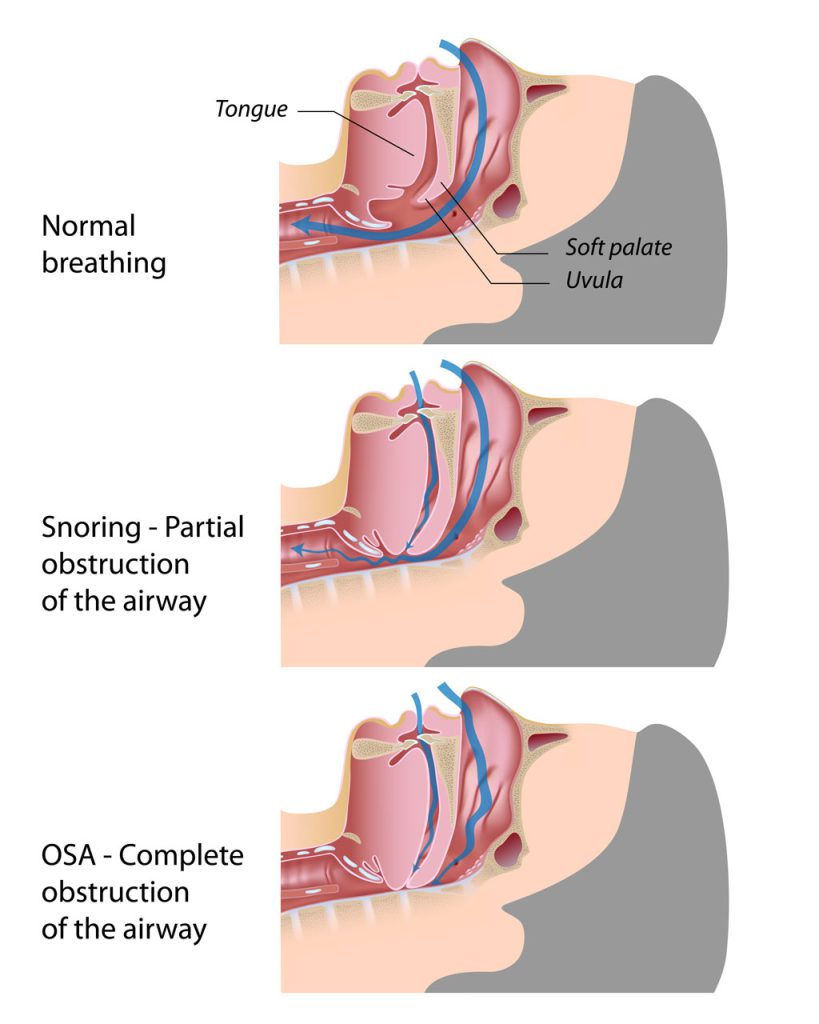 What causes snoring
What causes snoringSnoring is the rough or severe sound that occurs due to the rattling or vibration of tissues near the airway in the back of the throat as you breathe. In one word, snoring is noisy breathing while you sleep.
Snoring – a buzz of bees to loud as thunder
The sound of snoring ranges from barely audible to an extremely annoying noise that may be loud enough to hear in another room.
Who snores more?

It has been seen that generally snoring quite commonly occurs in about 57% of men and 40% of women and its prevalence increases with age.
How does snoring occur?
As you sleep, the soft tissues and tongue relax which partially block the airway. This blockage induces fluttering of the soft tissues of the nasopharynx and results in snoring.
The structural factors in your airways – make you more prone to snoring
- Micrognathia or retrognathia (structural abnormality of the lower jaw or upper jaw)
- Nasal septal deviation (nasal septum off-center)
- Rhinitis causes tissue swelling (irritation and inflammation of the mucous membrane inside the nose due to allergy)
- Obesity (an excessive amount of body fat)
- Macroglossia (tongues that are larger than typical)
- Enlarged soft palate
- Enlarged lateral pharyngeal walls (large tonsils)
What are the other risk factors?
Numerous factors can heighten the likelihood of snoring. These include:
- advancing age,
- Obesity
- Consumption of alcohol and other sedatives
- use of muscle relaxants or depressants,
- sleeping on one’s back
- Smoking
- Male sex
- pregnancy,
- Stressful life
- experiencing postmenopausal changes,
- having a low level of high-density lipoprotein (HDL) or ‘good’ cholesterol
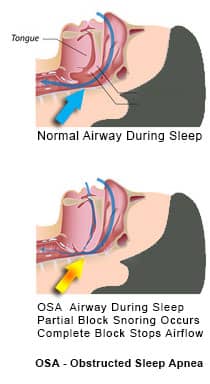
All these factors increase the risk of cardiovascular disease however the exact role of snoring in the presence of these conditions is still unknown.
Types of snoring:
It can be of various forms:
- Light or sporadic snoring is generally considered normal and seldom necessitates medical evaluation or treatment.
- On the other hand, primary snoring occurring more than three nights per week, typically doesn’t raise health concerns until it begins to disrupt sleep patterns.
- This is often associated with obstructive sleep apnea. Obstructive sleep apnea (OSA) is a breathing disorder causing repeated lapses in breath due to the blockage or collapse in the airway during sleep. If it goes untreated it can have major implications on the overall health of a person.
What are the complications of OSA?
If you experience anything like breathing pauses during sleep or excessive daytime sleepiness or difficulty concentrating or morning headache or sore throat upon awakening or restless sleep or gasping or choking at night or high blood pressure or chest pain at night during snoring or the sound of snoring is so loud to disrupt the sleeping of your partner or your BMI is more than equal to 35 kg/m2 then you should consult a doctor for further evaluation of OSA.
Poor attention span, behavioural issues, or poor performance in school by children are also associated with OSA and you should consult your pediatrician about it.
Researchers have also found possible associations between OSA and decreased renal function and self-reported habitual snoring is a significant risk factor for the development of chronic kidney disease (CKD) in individuals with normal renal function.
How can snoring be treated?
Home remedies and lifestyle changes:
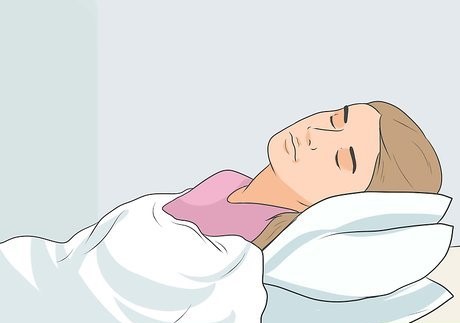
-
- Weight management: excess fat tissue around the airway, can obstruct the airflow, leading to this problem.
- Quit smoking: Tobacco smoke irritates tissues and causes inflammation leading to restricting the airflow in the upper airway.
- Limiting alcohol near bedtime: it acts as a muscle relaxant, which can relax throat muscles and lead to snoring.
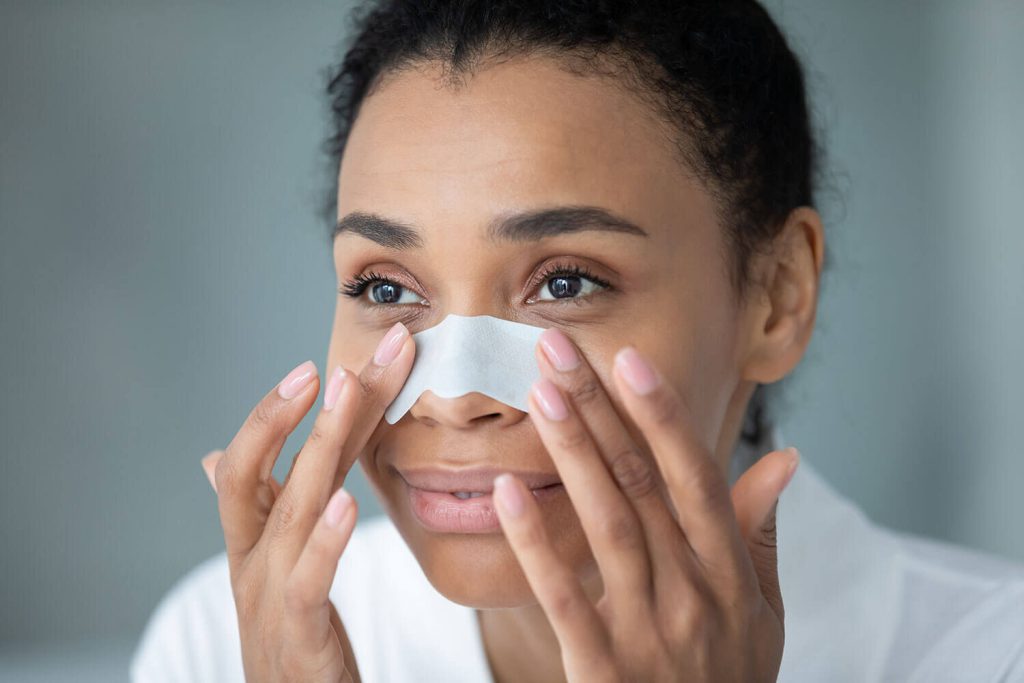
-
- Sleeping position: Sleeping on your side instead of your back and elevating the head of your bed a few inches can help you stop this problem. Sleeping on your back can relax your tongue and block the airway.
- Use nasal strips to widen your nostrils by adhering to the bridge of your nose.
- Good sleep hygiene: Inadequate sleep is linked to weight gain, a potential snoring trigger.
- Throat exercise: This may strengthen throat muscles and prevent them from collapsing during sleep.
- Yoga practices: regular practice of yoga can offer you a long-term solution to snoring by strengthening lung and nasal passages and improving blood circulation. Certain yoga or asanas such as Bhujang asana and Dhanur asana, open up the chest and neck, widening lung airways and regulating oxygen flow. Pranayam including ‘Om’ chanting at least 10-12 times daily and other yoga breathing techniques make you sleep better by expanding your mouth and resting your tongue on the roof of your mouth. Simha Garjasana prevents tongue relaxation and stimulates neck muscles and thus reducing the chance of snoring. To get more information you can join in our MUKTI programme.
Medical intervention:
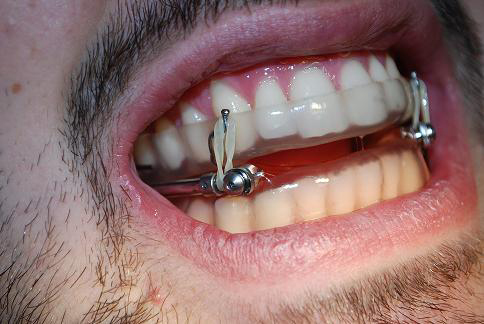
-
Oral appliances, this small plastic device are worn in the mouth while sleeping to keep airways open by repositioning the jaw or tongue.
-
Continuous positive airway pressure or CPAP, a machine that provides pressurized air into your airways while you sleep and effectively treating sleep apnea and often reducing this problem.
-
Uvulopalatopharyngoplasty, a surgical treatment that involves remodeling the palate, uvula, and pharyngeal walls and increasing the size of the airway. Potentially resolving severe snoring. Various surgical techniques are available for this purpose.
Snoring doesn’t inevitably mean that you have a medical complaint, but it can sometimes be a sign of a serious sleep disorder. So don’t take your sleep lightly. A doctor may advise you on the best solution to find ways to minimize this problem and help you and your partner for having a peaceful night’s sleep.
Comment
2023-06-25 20:57:45
Useful advice
2023-06-25 10:03:49
Very informative
2023-06-25 10:03:19
Bery informative...
2023-06-24 23:41:22
USEFUL ADVICE
2023-06-23 09:12:09
Excellent! Very effective discussion
Check Your EGFR
***We Promise, no spam!







2023-06-26 09:33:23
Very informative .